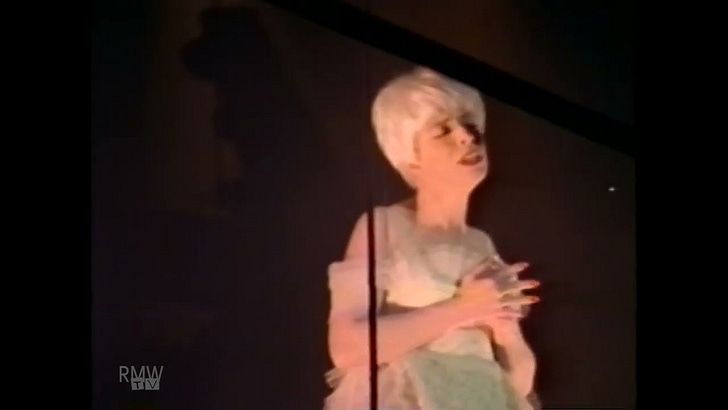If we’re lucky, a work of art leaves traces on us, like radioactive dust. A refrain we can’t shake, an image that stays lodged in the brain, a feeling that lingers long after the thought that provoked it. Many of the most memorable experiences of my life have come from encounters with the work of David Lynch. A few of them: Sitting down at my first term at Bournemouth Polytechnic with a housemate to watch a new TV show, Twin Peaks, and being assailed by all of that glacial strangeness, everything just a bit off, the acting oddly flat, the characterisation curiously unnaturalistic, the setting never managing to be picturesque, the music clunking in to signify emotion or meaning like the colour filters in a Hitchcock film. When it finished, we were both dazed and bursting with delight, but of a strange sort of delight, like we’d had the piss taken out of us by someone infinitely more wise than we were, who was dancing circles round us. This was not to humiliate us, just to nudge us into a different way of looking at things, at how the cliches and tropes we were so used to seeing on TV could be used in a completely different way, just by seeing them all from an oblique viewpoint.
Then there was the music, the soundtrack album and then Julee Cruise’s debut Floating into the Night, a record that haunted me for years, again refusing to quite inhabit the styles it was adopting – ghostly doo-wop, cool jazz, aged twang – sitting outside of itself as it cruised along. I recall being sat at home with my parents, the album on the stereo, my dad turning the volume up so his massive speakers made the room vibrate as the bass notes hung in the air. Now all three of its creators – Cruise, Badalementi and Lynch – are dead, and the music never revealed its secrets despite all of that obsessive listening.
One line, from the final song, ‘The World Spins’, summarises my experience of David Lynch. ‘A dog and bird are far away.’ A line without detail or poetry or emotion or drama. It’s almost insultingly flat and opaque. No detail about what the dog or bird are, what they look like, what they’re doing, just distant signifiers of a world spinning out of focus and beyond our comprehension.
Then Mulholland Drive, sat in the cinema with friends taking in this extraordinary tale, one that again is held together by flat, soapy performances, unnaturalistic characterisation, allusive moments so disturbing they are never referred to again, and more of those laughing gas decisions, the evil miniature neighbours, the characters swapping over as if Lynch has a remote control and is idly switching them as he goes. One shot, of the women’s walking legs, goes on for so long it is almost maddening, and relief when it cuts away, only to immediately continue again for another insufferably long period of time. The things you’d never do in a film, the things you’d never show or draw attention to. An outsider art moment from someone who could have been an insider, but chose not to be.
In interviews Lynch had an almost Warholian inability to communicate anything about his work that struck you as real. And as with Warhol, that was entirely appropriate. What he did was between the lines. God knows the lines themselves were flat and entirely unhelpful. Deliberately so. And that was one of the utter joys of his work, that it never pandered to a desire to make everything neat and regular. It’s not so much that he was a filmmaker, or a TV and video director, or a songwriter. It was that he had a way of looking at the world, and of processing it, that made you see it afresh. To take elements of everyday life and to collide them in such a way that they no longer felt in any way normal. This ability was profound, and it rewired the heads of millions of us. I no longer look at the world the same way I did before I encountered the work of David Lynch. The vibrating otherworldliness that lies beneath the flat clichés of expected life. Seeing it all as if out of body or heavily medicated, so that nothing quite makes sense. These feel like glimpses of what life actually is, if we stop our conjuring trick of trying to make it all fit some kind of neat, harmonious narrative. A dog and bird are far away. We can never really see them, because if we look directly they are not there.





John, You write articles that I would have like to have written. Julee Cruise… for me, the saxophone blare in Rockin' Back Inside My Heart remains one of music’s all time great bits!